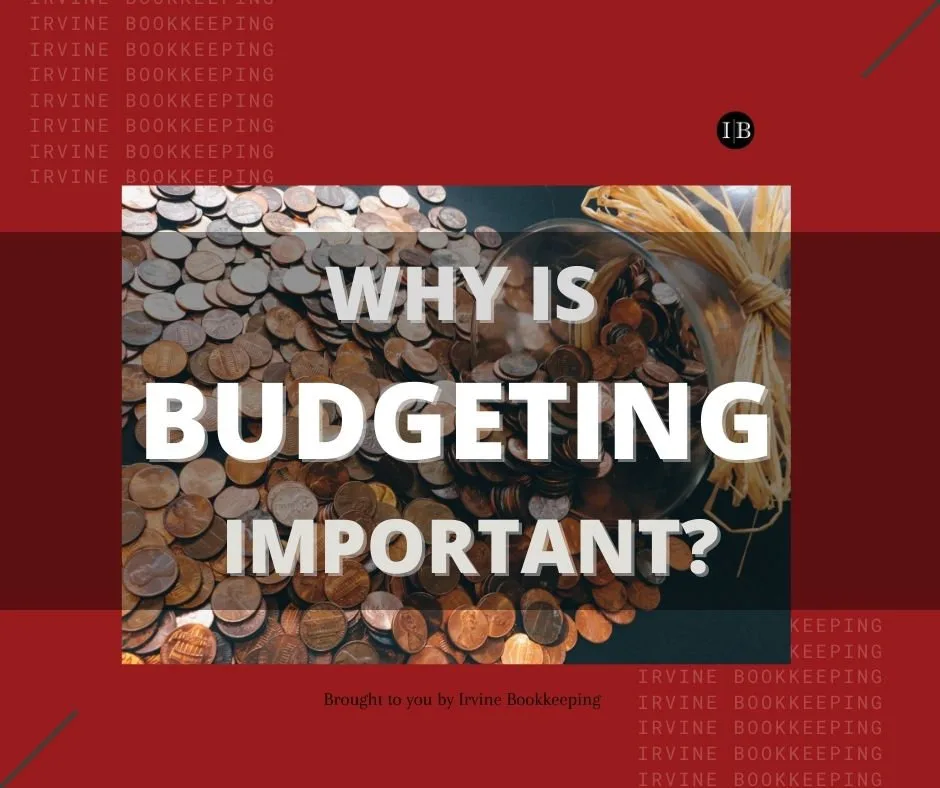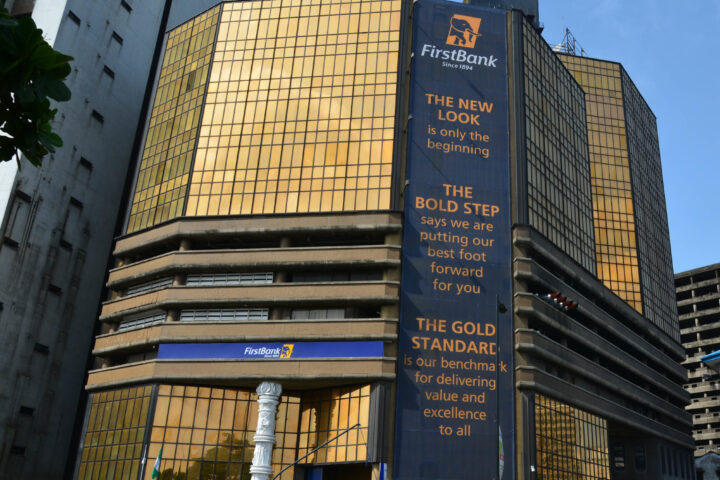By Elsie Udoh
Ever heard of the 50-30-20 rule? Well, it’s a straightforward budgeting method that states that you should spend up to 50% of your after-tax income on essential needs that you can’t live without. Then, 30% is set aside for wants, while the remaining 20% is dedicated to savings.
Join our WhatsApp ChannelBut, why have a budget in the first place?
When it comes to managing money, one of the most effective tools at your disposal is budgeting. Whether you’re a business owner or someone managing personal finances, budgeting plays a key role in helping you reach your financial goal. Not only does it help you keep track of your income and expenses, but you are better able to control spending habits and ensure long-term financial stability. In this guide, we’ll analyse the importance of budgeting for both businesses and individuals.
What is a Budget and Why is Budgeting Important?
Simply put, a budget is a financial plan that estimates income and expenses over a set period. This could be monthly, quarterly, or yearly. Having a budget helps you make long-term goals and achieve them. This is because you would be allocating your resources efficiently and avoiding spending money on impulse.
For businesses, budgeting helps to align financial decisions with overall goals, improves preparedness when an emergency strikes, and is a timeless secret to achieving success. Individuals can also benefit from budgeting, as it can help you to balance what comes in and out, ensuring that you save and invest wisely.
Here’s a breakdown of several reasons why budgeting is important for individuals and businesses alike:
- Control over finances: It gives you a clear view of where your money is going, helping you to cut unnecessary expenses.
- Achieving financial goals: Whether you’re saving for a house or retirement, investing in a business, or saving to clear off debt, a budget helps you ensure that you have enough resources to meet your goal and track your progress.
- Avoid debt: Budgeting saves you the stress of thinking about clearing off debt because, with a budget in place, you can prevent falling into unnecessary debt by staying aware of your financial limits.
Overall, budgeting is an essential way to manage not just your money but your future.
How A Budget Can Help Manage Spending Habits
We already mentioned that having a budget can give you a clearer view of where your money is going; this can be translated to mean that a budget can help you manage your spending habits. This is one of the biggest benefits of budgeting because it’s easy to spend mindlessly when you don’t have a clear picture of where your money is going. But the reverse becomes the case with a budget. It gives you the discipline to track every penny and see how your expenses weigh against your income. Let’s examine practically how this is done:
Preventing Overspending
We’ll illustrate how a bachelor earning ₦500,000 a month can create a budget to better manage his finances.
Without a budget, our bachelor might receive his salary, go grocery shopping, set aside some cash for transportation, enjoy a few nights out with friends, and then suddenly realise he’s running low on funds before the end of the month—with rent, utilities, and other bills still to be paid. He’s spending, but not efficiently.
Now, let’s see how budgeting could help him organise his finances and prevent overspending:
- Income: ₦500,000 monthly salary.
- Budget Categories:
- Housing (Rent): Let’s assume he rents an apartment for ₦200,000 per month. Instead of waiting until the end of the month to scramble for rent, he can set aside ₦200,000 from his salary as soon as he gets paid.
- Groceries and Food: He estimates that he spends about ₦80,000 on groceries and food each month, allocates that amount and makes sure to stick to it, avoiding unnecessary takeout and sticking to meal plans.
- Transportation: If he spends around ₦30,000 monthly on transport, this would be the next allocation.
- Entertainment: Since he enjoys hanging out with friends, he sets aside ₦20,000 for outings and social events. Doing so helps him to have fun within limits.
- Utilities (Electricity, Internet, etc.): This might take another ₦30,000 of his budget. By planning for it, he ensures that he won’t face service disruptions or extra fees from late payments.
- Savings: He decides to save ₦50,000 monthly. This gives him peace of mind that he’s working toward future financial goals.
- Miscellaneous: The remaining ₦90,000 can go toward unexpected expenses or smaller categories like clothing or personal care.
The difference is evident: with a clear structure, our bachelor knows exactly how much he has available for each category and when he’s getting close to his limit. For example, instead of mindlessly spending on outings, he’ll be more conscious, knowing he has only ₦20,000 set aside for entertainment.
In this case, the budget ensures that every part of his salary is accounted for, preventing the financial stress of running out of money mid-month and helping him to save, spend, and manage more effectively.
In essence, budgeting gives you a sense of control over your monetary choices, empowering you to make more informed decisions.
Achieving Financial Goals Through Budgeting
Budgeting is the foundation of goal-orientated financial planning. Whatever your goal is, budgeting helps you to allocate your resources appropriately and align with your long-term goals.
When it comes to allocating resources, a budget serves as a tool to direct your resources. By setting aside a certain amount of money each month, you can work towards your goals more effectively.
For long-term goals that require consistent planning, such as retirement or buying a house, a budget keeps you on track, ensuring that you don’t fall into the trap of overspending. For example, if you want to save ₦100,000 for a home down payment in the next two years, a budget will show you how much you need to save monthly to achieve that target.
The beauty of budgeting is that it allows you to balance short-term goals with long-term goals, ensuring that both are achieved without financial strain. Budgeting can also make savings simple and help you to save in bits rather than putting a large chunk of your money all at once in a project.
Building an Emergency Fund: Why It’s Essential
An essential component of any good budget is the emergency fund. But what is an emergency fund? This is a contingency fund that is set aside for financial emergencies or unforeseen expenses like medical bills, home repairs, or sudden job loss. It serves as a safety net that provides you with what to fall back on when financial troubles arise.
The Ideal Emergency Fund
Experts recommend having enough in your emergency fund to cover three to six months’ worth of living expenses. Budgeting helps you consistently set aside a small portion of your income each month towards your emergency fund until you reach your target goal. This way, when an emergency arises, you won’t need to rely on credit cards or loans, which can push you into debt (remember that your budget should keep you free from debtintonitt get you in them).
This is important because having an emergency fund not only gives you peace of mind but also promotes financial security. It ensures that even in times of uncertainty, you have the resources to handle unexpected costs without derailing your other financial goals.
The Role of Forecasting in Budgeting
Like building an emergency fund, forecasting is another essential component of budgeting. It involves estimating future income and expenses to help you make more accurate financial decisions.
Forecasting can be done by both individuals and businesses to adjust their budgets in real-time to fit changing circumstances. For instance, let’s say you typically allocate ₦15,000 for your monthly utility bills. However, as the weather shifts, you anticipate your utility costs might rise to ₦25,000. To balance this, you can temporarily adjust your budget by making changes in other areas. For example, if you had planned to spend ₦30,000 on entertainment, you could cut that down to ₦20,000 for the month and reallocate that extra ₦10,000 to cover the higher utility bill.
This flexibility enables you to effectively adapt to unexpected changes without overspending or detracting from your initial budget, which saves you from financial strain.
Five Reasons Budgeting is Important for Financial Stability
The importance of budgeting cannot be overemphasised. Budgeting isn’t just a good habit; it also aids the attainment of financial stability. Here are five reasons why budgeting is crucial for both businesses and individuals:
- Control Overspending: A budget keeps you from spending money on things you don’t need, helping you prioritise essentials and avoid unnecessary purchases.
- Allocate Funds for Investments: By budgeting, you can set aside funds for investments, whether it’s in the stock market, retirement accounts, or expanding your business.
- Track Cash Flow: A budget gives you a clear view of your cash flow, so you always know how much money is coming in and going out.
- Prepare for Emergencies: Budgeting ensures that you have money set aside for unexpected expenses, so you’re never caught off guard.
- Plan for Long-term Financial Goals: A budget aligns your daily financial decisions with your long-term goals, such as saving for a down payment on a house.
Business Budgeting: Ensuring Profitability and Financial Growth
When a business integrates budgeting into its activities, resources are used efficiently, which helps to ensure profitability and makes financial growth align with the company’s objectives. Budgeting allows businesses to track their performance, adjust to market changes, and ensure long-term sustainability.
Types of Business Budgets
There are different types of budgets that businesses use, including:
- Operating Budget: This covers day-to-day expenses like salaries, utilities, and rent. Here’s a sample operating budget that you can apply to your business:
- Sales Budget: Rather than deal with daily expenses, a sales budget, on the other hand, forecasts future sales, helping the business plan its production and marketing efforts. See a sample below:
- Master Budget: This is more extensive than a sales or operating budget as it combines all aspects of a company’s budget, giving a complete overview of financial planning.
How a Budget Helps You Prepare for Major Financial Decisions
A budget is crucial when you’re preparing to make major financial decisions, like purchasing a home, starting a business, or saving for retirement. Having a clear budget helps you assess how much you can afford and plan for necessary expenses. Essentially, a budget keeps you informed about how much money you have and how much you need to achieve what you need and tells you when a financial decision is unrealistic for you.
In addition to having a budget, it is essential to understand your budget. This is what equips you with financial literacy and allows you to allocate your resources wisely.
Ready to start making and documenting your financial decisions? Here’s a budget template that you can duplicate and use to create a budget that works for you:
Sticking to a Budget: Staying on Track with Financial Management
So you’ve created a budget; that’s a great step! But then, keep in mind that creating a budget is one thing, but sticking to it is another challenge entirely, which many people struggle with, so don’t feel disappointed when you sidetrack from spending according to your budget demands.
However, what’s not okay is if you keep allowing yourself to detract from your budget (then why create one?) We don’t want that for you, so we have curated some tips that can help you stay disciplined and stick to your budget:
Tips to Help You Stick to Your Budget
- Make sure your budget is practical and fits your income level.
- Find and select a budgeting method that suits your lifestyle.
- Set up automated savings and bill payments to stay consistent.
- Account for regular expenses, like rent or utilities, in advance.
- Avoid impulse buying by sticking to your financial plan.
- Track your progress regularly and hold yourself accountable to stay on target.
Benefits of Sticking to a Budget
Sticking to your budget is never a wrong decision; on the contrary, many benefits come with being disciplined and sticking to your budget. They include:
- Prevents Overspending: A well-planned budget helps you avoid spending more than you can afford, keeping your finances on track.
- Helps Manage Debt: Say hello to a debt-free you! When you stick to your budget, you avoid accumulating debt and pay bills on time. It also helps you to live within your means.
- Achieves Financial Goals: Whether you’re saving for a vacation, a car, a new home, or long-term investments, sticking to a budget aligns your spending with both short- and long-term financial goals.
- Prepares for Emergencies: A budget ensures that you’re setting aside money for an emergency fund, protecting you from unexpected financial setbacks.
- Eases Retirement Saving: Planning your finances through budgeting makes it easier to consistently contribute to retirement savings, ensuring long-term security.
- Gives You Financial Control: Using a budget empowers you to take control of your financial situation, reducing stress and keeping you in charge of your money management skills.
Conclusion
Well done for getting to this point! You have seen how essential budgeting is for both businesses and individuals. Are you ready to be in control of your finances? Then take some time aside today to create a budget that will help you grow your business, improve your personal finances, and aid the achievement of your financial dreams.

















Follow Us